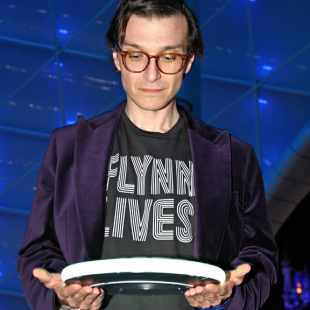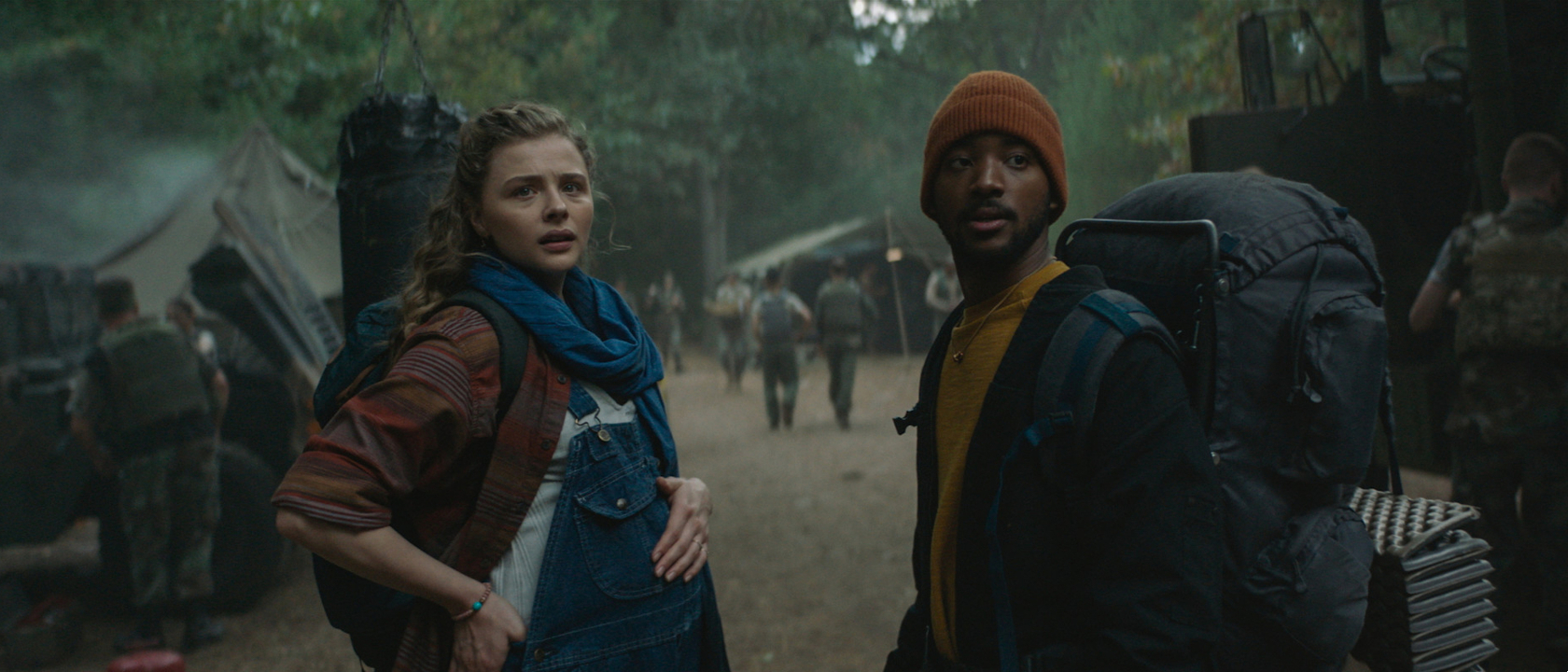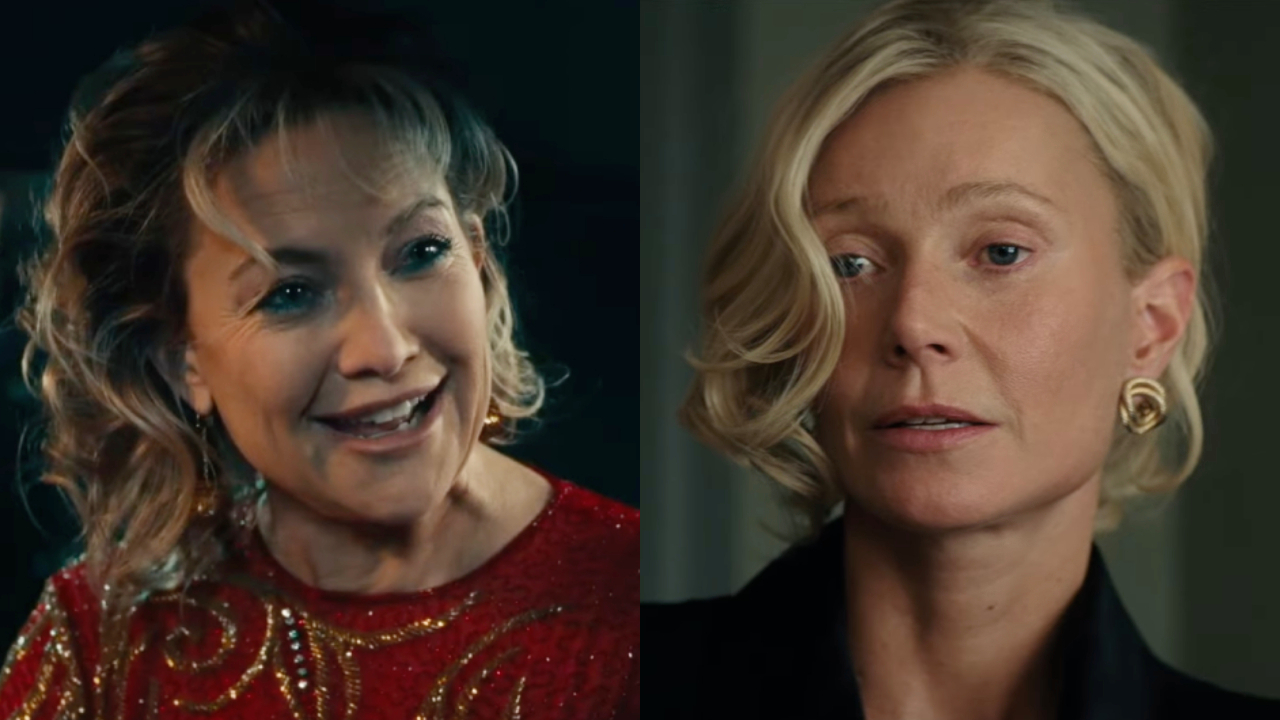Words like “robot apocalypse” conjure a bunch of familiar images when uttered. Battalions of human and android troops marching towards each other with a constant blasts of laser beams tend to be some of the most immediate concepts that come to mind. You can blame decades of sci-fi/action projects conditioning the audience to almost demand those sorts of things, and it’s part of why some might initially shy away from writer/director Mattson Tomlin’s Mother/Android. For a movie that takes place during such an event, the action is supplanted by drama brilliantly focused on the human cost of survival, and the film is all the better for it.
Things start out pretty low-key too, as our introduction to this world shows us human couple Georgia (Chloë Grace Moretz) and Sam (Algee Smith) discovering that they have an unexpected baby on the way, testing the fragile status of their relationship. Discussing how to handle this news, the audience is slowly brought up to speed in terms of the subtly futuristic reality these two live in, thanks to the inclusion of very humanoid looking androids shown in use as domestic assistants. When the robot apocalypse begins and these artificial slaves begin their uprising, it’s only for a brief moment so as to set up the world, rather than plunge Mother/Android into total sci-fi warfare.
In fact, there’s a sparse number of sequences where androids are even present for a good piece of Tomlin’s directorial debut. The decision is admittedly jarring, as the expectation would be to see Georgia and Sam literally fighting for their lives every step of the way. That would be the action/adventure version of this story – but that’s not the angle here. Instead, Mattson Tomlin plants his story’s lens firmly on the relationship between our leads, with some well timed injections of tension and fighting.
Rather than tell another story of battling artificial intelligence, Mother/Android constantly questions how far a person could, and should, go to survive.
Survival is the key ingredient to Mother/Android’s thematic blueprint, as our focus is trained on Chloë Grace-Moretz and Algee Smith almost the whole movie. The first two acts show their characters planning their uncertain future, while mapping out exactly what they have to do in order to make it to those supposedly sunny days. Whispers of hope, and a potential escape for new families via a boat in Boston, are continually repeated; as Georgia and Sam move through the woods to their intended destination. Obstacles are overcome, simple demands like a comfortable mattress to sleep on are evaluated and hunted down – but the threats of the outside world are always in the corner of the characters' minds.
Even knowing full well what the endgame is throughout the film, the scope of this extended woodland journey doesn’t budge much past a relatively street level approach. A big chase sequence in the woods opens up a little bit through the use of drones, but other than that, the establishing shots of the wider world are limited. No complaints are present in that assessment though, as the character work that is intended to set the pace of Mother/Android is well plotted, and engrossing to watch.
Carrying the majority of the first two acts of their story, Chloë Grace-Moretz and Algee Smith are compelling to follow. Some of the beats that you’d expect are hit, such as Georgia and Sam encountering a military encampment full of people they don’t exactly trust. But that plotline doesn’t act as a major pivotal moment as it would in other apocalyptic stories, as Mother/Android sets our survivors on their path rather quickly. It’s that sort of pacing that firmly establishes the personal stakes of the story, as the protagonists are forced to think on their feet at all times with safety never being a guarantee.
The drama between Chloë Grace-Moretz and Algee Smith carries the film along effortlessly, but Raúl Castillo delivers an amazing supporting performance that makes the most of his time on screen.
Humanity in times like the robot apocalypse can get pretty sentimental, but Chloë Grace-Moretz and Smith anchor the action with believable performances. There are a couple moments here and there where the beats feel a little too well worn, especially with Georgia’s slightly repetitive announcement of her pregnancy early on. Much like the rhythm of the story, the acting in Mother/Android locks in tight and fast, giving this novel and intimate narrative characters who are worth following.
Your Daily Blend of Entertainment News
The addition of other characters to stir the pot is just as selective, with Raúl Castillo’s Arthur acting as the best example of the limited-but-effective expansion of scope and cast. Castillo shows up towards the end of the second act, but he is efficiently established with a clear purpose in this universe. Using limited screen time to his advantage, Castillo makes a sizable dent when the story needs him to, and his performance puts him on the same level as Chloë Grace-Moretz and Algee Smith's leading pair.
Largely avoiding blockbuster set pieces and melodrama, Mother/Android is a low-key robot apocalypse that cranks things up in deliberate measure.
There are times that Mother/Android invokes the memory of Children of Men, right down to a subplot involving a seafaring organization called “The Family Initiative.” It’s an influence that’s properly felt, but never goes overboard at any point during Mattison Tomlin’s film. Though the pacing and intent may throw off some audiences at the start, and some moments in Chloë Grace-Moretz’s performance fall a little flat, none of it ruins what eventually becomes a solid sci-fi drama/thriller that isn’t afraid to do things differently.
By largely avoiding blockbuster set pieces and melodrama, Mother/Android's action and suspense are heightened with great clarity when things do start to get chaotic. The third act has a particularly effective payoff thanks to the time we’ve spent establishing how this world works with Georgia and Sam. Without the proper balance of character and world building, the moments that the movie decides to play things a bit faster and flashier wouldn’t have nearly as much gravity as they do by the end of the picture.
If Mother/Android is a movie about any sort of message, it’s about weighing the choices you have in front of you carefully. Sam does get a moment of dialogue where he states the usual intent of sacrificing himself for his family – if the situation calls for it. In any other film, that would be stock heroism, but here, the field of play is established so well that anyone will find themselves questioning if any of our protagonists will make it out alive, and what they’ll have to do to achieve that goal.
The future is dangerous and emotional in this sci-fi thriller, making this a feature directorial debut that establishes a clear and commanding genre storytelling voice for Mattson Tomlin. This is particularly is fantastic, because that also means this film is a pretty ringing endorsement for what he might be able to do with the anime project set in the Terminator franchise that he is developing for Netflix. Judging by the promise shown in Mother/Android, Tomlin’s future as a writer, and even a director, is as bright as the hopes humanity clings to during the robot apocalypse.

Mike Reyes is the Senior Movie Contributor at CinemaBlend, though that title’s more of a guideline really. Passionate about entertainment since grade school, the movies have always held a special place in his life, which explains his current occupation. Mike graduated from Drew University with a Bachelor’s Degree in Political Science, but swore off of running for public office a long time ago. Mike's expertise ranges from James Bond to everything Alita, making for a brilliantly eclectic resume. He fights for the user.

